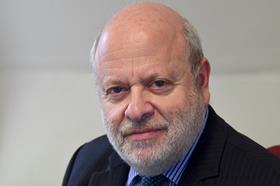Don’t tell me that lawyers do what everyone else does on their summer holidays, I won’t believe it.

I see an enthusiastic lawyer seeking out the local court – paying a visit, taking a selfie in front of it, trying to engage the staff in basic Spanish or Croatian (or whatever), maybe even trying to witnessing a trial – while the rest of the family is splashing in the sea.
If the lawyer is forced down to the beach, summer bestsellers are spurned in favour of Lord Sumption’s attack on the US Supreme Court in Prospect Magazine, mocking the absurdity of giving President Trump criminal immunity from official acts. Once that is finished, there is the letter from UK Lawyers for Israel warning Karim Khan KC, the prosecutor at the International Criminal Court, that he is breaching the court’s rules and the Code of Conduct of the English Bar in his applications for the arrest of Benjamin Netanyahu and Yoav Gallant.
For some holidaymakers, private visits or even quiet reading are out of the question – there is barbecuing, going on organised trips, looking after children. So my imagined lawyer will then be doing what all cool lawyers are doing at the moment: in a few stolen moments of privacy late at night, Twitter/X will be abandoned for Bluesky in protest at Elon Musk’s interventions over the UK summer riots, and in general over the management of his platform.
If you have done none of these things over the summer – no, I won’t say what on earth have you been doing? – it is worth pausing to say that the kerfuffle over Twitter/X and Telegram has posed the biggest global legal issue over the last month, which will affect all our lives. The law has not taken a holiday.
In the case of Twitter/X, the flight of numerous of its UK users has been compounded by its judicially-ordered closure in Brazil, leading to a million new users to Bluesky over three days. At the same time, the EU has Twitter/X in its sights, charging the platform under the new Digital Services Act with failing to respect EU social media law on disinformation and illegal content, with the possibility of a multi-million euro fine.
As for Telegram, as we know, its CEO and founder, Pavel Durov, was arrested in France, and subsequently charged with several offences, including complicity in the distribution of child abuse images, drug trafficking and failure to comply with law enforcement requests.
In other words, regulators and law enforcement are finally confronting the huge legal question of the responsibility of the social media platforms for their content. Advertisers and consumers are struggling with the same question, and in some cases take direct action by moving their business elsewhere.
What else has happened in the law while its practitioners have been away? (I know, not everyone has been away. Some lawyers had to take action to protect their lives and businesses at the height of the UK riots, and their experience comes nowhere near my caricature.) Here are a couple of interesting legal developments from the US and the EU.
In the US, the American Bar Association (ABA) took a step towards dealing with the consequences of another Supreme Court decision, the 2023 judgment that barred race-conscious admissions policies at US colleges and universities. The Council of the ABA’s Section of Legal Education and Admissions to the Bar, which is recognised by the US Department of Education as the sole accreditor of 197 US law schools (yes, really), has proposed a change to one of its standards for accreditation. The standard on ‘Diversity and Inclusion’ is proposed to be renamed ‘Access to Legal Education and the Profession’, and focuses on achieving access for students, faculty and staff without any reference to race or ethnicity.
And in the EU, there was a second case from Belgium before the Court of Justice of the EU (CJEU) on the validity of provisions of the DAC 6 directive (the part relating to compulsory notification of aggressive cross-border tax arrangements) - Case C-623/22, Belgian Association of Tax Lawyers and Others.
One part of that decision will be of interest to lawyers everywhere. In a previous case on DAC 6, the CJEU had held that the reporting provisions of the directive breached lawyers’ legal professional privilege (LPP). The question was whether that decision held also for other legal professionals (like specialised tax lawyers) who are not full lawyers as recognised under the EU establishment directive (98/5), but have the right of legal representation of clients under national law. The answer is ‘no’: only full lawyers as recognised in 98/5 have the right to call in aid LPP under DAC 6, because of a full lawyer’s recognised role in the justice system.
So, the law has not been idle on a beach after all, but has gone into the office every day.
Jonathan Goldsmith is Law Society Council member for EU & International, chair of the Law Society’s Policy & Regulatory Affairs Committee and a member of its board. All views expressed are personal and are not made in his capacity as a Law Society Council member, nor on behalf of the Law Society































No comments yet